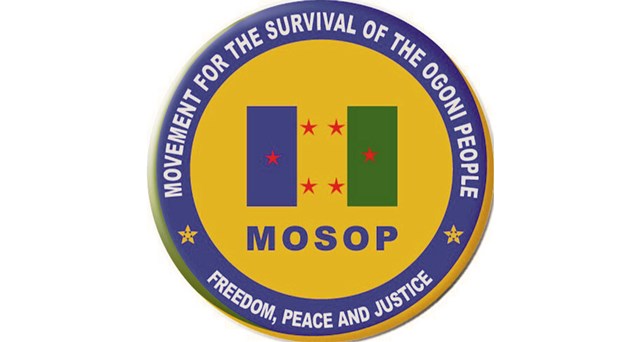Oil & Energy
Ogoni Clean-Up Fund Not For Sharing – MOSOP

The Movement for the Survival of Ogoni People (MOSOP) has said that the fund earmarked for the implementation of the Ogoni-clean up exercise as recommended by the United Nations Environment Programme (UNEP) is not for sharing among individuals as envisaged within some quarters.
President of MOSOP, Legborsi Pyagbara, disclosed this while speaking with newsmen in Port Harcourt at the weekend.
Pyagbara explained that the $10m released for the clean up exercise so far was meant to serve the intended objective and cautioned against speculations over alleged misappropriation of the fund.
Contrary to the views that the fund for the cleanup has been embezzled by some individuals,he said it would be impossible to emblezzle the fund because the account of the Ogoni Trust Fund operated on tripartite signatory; the Federal Government, International Oil Companies (IOCs) and Ogoni.
He also called on the people to disabuse their minds from the idea of sharing the funds meant for the Ogoni clean up exercise and on all stakeholders to ensure the successful implementation of the exercise.
According to the MOSOP president, there was a clear cut difference between the Bodo clean up process and Ogoni general environmental clean up program.
He pointed out that, while the Ogoni general clean up was an independent assessment of UNEP bothering on the restoration and remediation of the despoiled Ogoni environment, the Bodo clean up process came out of an instituted litigation and court process in London.
He further explained that the Bodo clean up process comprised of three critical components such as clean up, compensation and social investment.
Pyagbara called for the speedy implementation of the UNEP report on the Ogoni clean up in line with international best practices to alleviate the plight of the people.
Taneh Beemene
Oil & Energy
Take Concrete Action To Boost Oil Production, FG Tells IOCs

Speaking at the close of a panel session at the just concluded 2026 Nigerian International Energy Summit, the Minister of State for Petroleum Resources (Oil), Senator Heineken Lokpobiri, said the government had created an enabling environment for oil companies to operate effectively.
Lokpobiri stressed that the performance of the petroleum industry is fundamentally tied to the success of upstream operators, noting that the Nigerian economy remains largely dependent on foreign exchange earnings from the sector.
According to him, “I have always maintained that the success of the oil and gas industry is largely dependent on the success of the upstream. From upstream to midstream and downstream, everything is connected. If we do not produce crude oil, there will be nothing to refine and nothing to distribute. Therefore, the success of the petroleum sector begins with the success of the upstream.
“I am also happy with the team I have had the privilege to work with, a community of committed professionals. From the government’s standpoint, it is important to state clearly that there is no discrimination between indigenous producers and other operators.
“You are all companies operating in the same Nigerian space, under the same law. The Petroleum Industry Act (PIA) does not differentiate between local and foreign companies. While you may operate at different scales, you are governed by the same regulations. Our expectation, therefore, is that we will continue to work together, collaborate, and strengthen the upstream sector for the benefit of all Nigerians.”
The minister pledged the federal government’s continued efforts to sustain its support for the industry through reforms, tax incentives and regulatory adjustments aimed at unlocking the sector’s full potential.
“We have provided extensive incentives to unlock the sector’s potential through reforms, tax reliefs and regulatory changes. The question now is: what will you do in return? The government has given a lot.
Now is the time for industry players to reciprocate by investing, producing and delivering results,” he said.
Lokpobiri added that Nigeria’s success in the upstream sector would have positive spillover effects across Africa, while failure would negatively impact the continent’s midstream and downstream segments.
“We have talked enough. This is the time to take concrete actions that will deliver measurable results and transform this industry,” he stated.
It would be noted that Nigeria’s daily average oil production stood at about 1.6 million barrels per day in 2025, a significant shortfall from the budget benchmark of 2.06 million barrels per day.
Oil & Energy
Host Comm.Development: NUPRC Commits To Enforce PIA 2021

Oil & Energy
PETROAN Cautions On Risks Of P’Harcourt Refinery Shutdown

The energy expert further warned that repeated public admissions of incompetence by NNPC leadership risk eroding investor confidence, weakening Nigeria’s energy security framework, and undermining years of policy efforts aimed at domestic refining, price stability, and job creation.
He described as most worrisome the assertion that there is no urgency to restart the Port Harcourt Refinery because the Dangote Refinery is currently meeting Nigeria’s petroleum needs.
“Such a statement is annoying, unacceptable, and indicative of leadership that is not solution-centric,” he said.
The PETROAN National PRO reiterated that Nigeria cannot continue to normalise waste, institutional failure, and retrospective justification of poor decisions stressing that admitting failure is only meaningful when followed by accountability, reforms, and a clear, credible plan to prevent recurrence.
-

 Politics1 day ago
Politics1 day agoAPC Releases Adjusted Timetable For Nationwide Congresses, Convention
-

 Sports5 days ago
Sports5 days agoHammers Beat Burnley To Boost Survival Chances
-

 Business1 day ago
Business1 day agoCustoms Seek Support To Curb Smuggling In Ogun
-
News1 day ago
Police Bust Kidnapping Syndicate In PH
-
Sports1 day ago
DG NIS Wants NSC Board Constituted, Seeks Increased In Funding
-
Sports1 day ago
Falcon Players Prepare For Title Defense
-
Sports1 day ago
NSC Disburses N200m Training Grants To 26 Athletes
-
Sports1 day ago
NFF Await World Cup Fate Ahead Play-Offs

